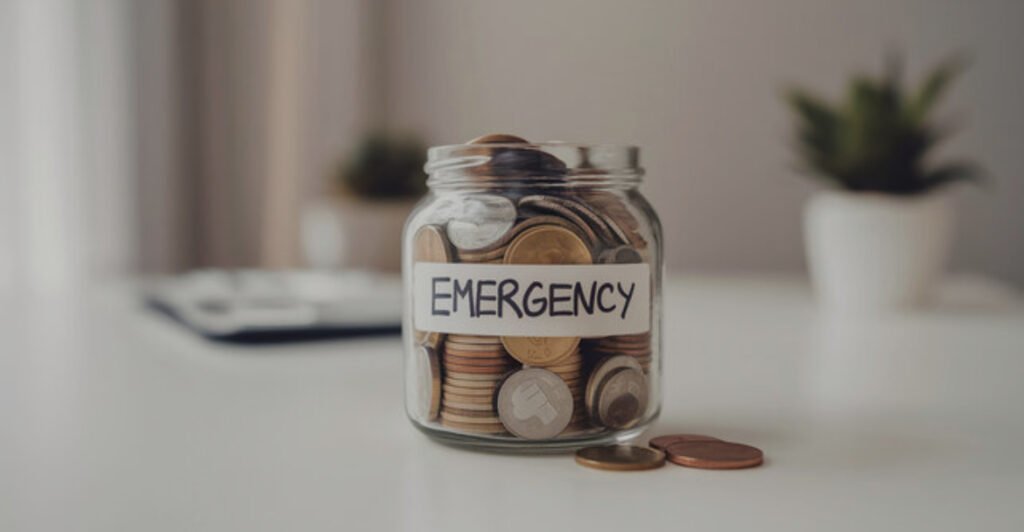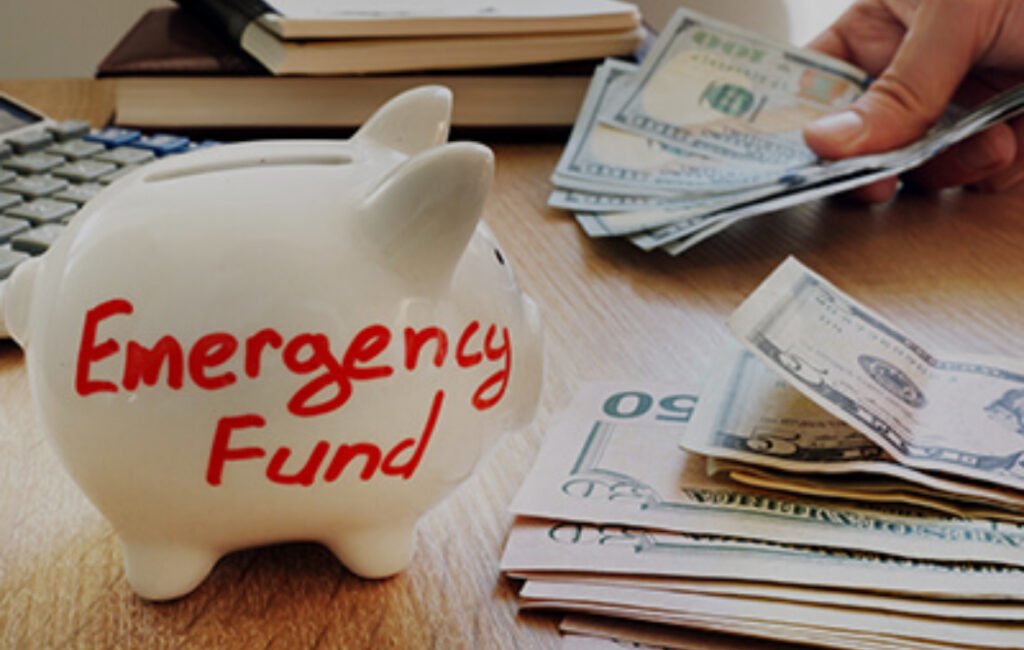Introduction: Why Personal Finance Basics Matter
Money plays a central role in our daily lives—shaping where we live, how we spend our time, what we eat, and even how secure we feel about the future. Yet, for most people, money management is something they were never formally taught. Instead, we learn through trial and error, often making costly mistakes before discovering what actually works. That’s why understanding personal finance basics is so important. These foundational skills can help you build a stronger, more stable financial life no matter where you’re starting from.
In today’s fast-paced, digital world, spending is easier than ever. Credit cards, online shopping, and subscription services make it easy to lose track of where your money is going. Meanwhile, financial stress has become a leading cause of anxiety for individuals and families alike. But here’s the good news: by learning and applying personal finance basics, you can take back control, reduce your stress, and start creating a path toward true financial freedom.
Many people believe that financial success is only for the wealthy or those with advanced degrees. In reality, financial security is built through consistent habits, informed decisions, and a willingness to learn. The most powerful tools—like budgeting, saving, building credit, and managing debt—are accessible to anyone. You don’t need to be an expert or earn six figures to benefit from these principles. What you do need is a willingness to start and a commitment to follow through.
Think of personal finance basics as your financial toolkit. Just like a house needs a solid foundation, your financial life needs structure. Without a budget, it’s hard to know where your money is going. Without an emergency fund, an unexpected bill can derail your entire plan. Without a retirement strategy, your future may be more uncertain than you realize. But when you understand and apply these basics, everything begins to shift. You gain clarity. You make smarter choices. You begin to feel confident, not confused, about your money.
In this guide, we’ll walk you through 10 essential principles that form the core of personal finance basics. From creating a budget that actually works to understanding how credit scores affect your future, each section is designed to give you actionable steps you can take right away. You’ll learn how to save with purpose, pay off debt strategically, and start investing—even if it’s just a little at a time.
The best part? You don’t have to master everything at once. Personal finance is a lifelong journey, and progress beats perfection. Whether you’re a recent graduate trying to build credit, a busy parent juggling expenses, or someone planning for retirement, this guide will give you the clarity and confidence you need to move forward.
By the end, you’ll not only understand personal finance basics—you’ll know how to use them to build a life of financial freedom, stability, and peace of mind.
Money touches every part of our lives—where we live, what we eat, how we spend our time, and even our peace of mind. Yet most people were never taught the essentials of managing it. That’s where understanding personal finance basicscomes in. Whether you’re earning your first paycheck or already deep into your career, mastering your money starts with the fundamentals.
We live in a world where credit cards are easy to swipe, impulse spending is one click away, and financial stress is more common than ever. But what if you had a clear plan? What if you knew how to create a budget, track expenses, eliminate high-interest debt, and start saving for the future—without feeling overwhelmed?
The truth is, most financial problems don’t stem from low income—they come from not knowing the money management skills needed to make the most of what you earn. That’s why learning personal finance basics is a game-changer. It gives you the tools and mindset to build a life you actually want—not one dictated by overdue bills or rising debt.
Think of it this way: you wouldn’t build a house without a blueprint, and you shouldn’t build your financial life without one either. The good news? You don’t need a finance degree or six-figure salary to get started. All you need are smart habits and the willingness to take consistent, small steps toward your financial goals.
In this guide, we’ll walk you through 10 essential personal finance tips that everyone should know. These lessons will help you reduce stress, improve budgeting habits, and take control of your money. From understanding credit scores and building an emergency fund to learning how to invest for retirement—you’ll gain the foundational knowledge needed for long-term financial success.
We’ll also explore why saving money (even in small amounts) can lead to big results, and how building financial literacy empowers you to make better decisions. If you’ve ever asked, “Where does all my money go?”, this article is your answer.
You’ll learn to recognize common mistakes, avoid unnecessary debt, and make smarter financial choices with confidence. Most importantly, you’ll gain a sense of clarity and control. Because once you understand personal finance basics, you’re not reacting to money—you’re in charge of it.
Whether you’re trying to pay off student loans, save for a house, or build long-term wealth, this is your starting point. It’s time to stop surviving and start thriving.
Let’s dive in—and help you master your money once and for all.
Understanding Personal Finance Basics
1. Budgeting: Your Financial GPS
When it comes to mastering your money, budgeting is the ultimate tool. Think of it as your financial GPS—a system that guides you toward your goals, keeps you on track, and reroutes you when you veer off course. At the core of all personal finance basics, budgeting is the habit that makes everything else possible—whether you’re saving for a house, paying down debt, or simply trying to make ends meet.
A budget isn’t just a restrictive spreadsheet full of numbers. It’s a realistic plan that shows you where your money is going and how to take control of it. Without a clear budget, it’s easy to overspend, miss payments, or fall short on your financial goals. Even high earners can end up living paycheck to paycheck without one.
Why Budgeting Is Essential
Budgeting empowers you to make intentional decisions about your money. It gives you clarity over your income and expenses and helps you make space for saving, investing, and building security. It also shines a light on wasteful spending habits, making it easier to cut back without feeling deprived.
One of the most well-known methods—and a great starting point for beginners—is the 50/30/20 rule:
- 50% for Needs: Rent or mortgage, utilities, groceries, insurance, transportation
- 30% for Wants: Dining out, entertainment, travel, shopping
- 20% for Savings and Debt Repayment: Emergency fund, retirement contributions, paying off loans
This simple structure aligns with personal finance basics by helping you cover essentials, enjoy life, and still move forward financially.
Personal Finance Basics Tip: Make Your Budget Work for You
A budget only works if it fits your lifestyle. That’s why customization is key. Track your spending for a month or two to see where your money naturally goes. Then set realistic spending limits in each category. You might find that you’re spending more on takeout than you thought—or that small impulse buys are quietly draining your savings potential.
Don’t forget to include occasional expenses like birthdays, holidays, car maintenance, or annual subscriptions. These can throw off your budget if you don’t plan for them in advance.
Tools to Simplify Budgeting
Thanks to modern technology, managing your budget is easier than ever. Here are some popular tools:
- Mint: Automatically tracks spending and categorizes transactions
- YNAB (You Need A Budget): Great for proactive planning and zero-based budgeting
- EveryDollar: Clean and user-friendly with a focus on goal setting
- Spreadsheets: If you prefer control, a simple Excel or Google Sheets template does the trick
Choose a method you’ll actually use. The best budget isn’t the fanciest one—it’s the one you stick to consistently.
Budgeting = Financial Freedom
Mastering your budget is the first major step in learning personal finance basics. It’s not about restriction—it’s about direction. When you budget wisely, you tell your money where to go instead of wondering where it went. You’re in charge, not your bills or your spending habits.
So whether you’re trying to get out of debt, save for a dream vacation, or just stop living paycheck to paycheck, budgeting is your foundation. Start simple, stay consistent, and take back control of your money—one smart decision at a time.
2. Understanding Credit and Credit Scores
One of the most overlooked yet powerful elements of your financial toolkit is your credit score. This three-digit number may seem simple, but it has a huge impact on your financial life. From getting approved for a credit card or car loan to qualifying for a mortgage or renting an apartment, your credit score often serves as the gatekeeper to your biggest financial goals. In some cases, it can even influence job opportunities or your ability to set up utility accounts.
That’s why understanding how credit works is one of the most essential personal finance basics you can master.
What Is a Credit Score and Why Does It Matter?
Your credit score is essentially your financial trustworthiness scorecard. It reflects how well you manage borrowed money. Lenders use this number to decide how likely you are to repay debt responsibly. A higher score means you’re seen as less risky, which can result in lower interest rates and better borrowing terms.
There are multiple scoring models, but the FICO Score is the most widely used. It ranges from 300 to 850, and here’s a breakdown of how that score is typically calculated:
The 5 Key Factors of Your Credit Score:
- 35% – Payment HistoryThis is the most important factor. Do you pay your bills on time? Even one missed or late payment can stay on your report for up to seven years.
- 30% – Credit UtilizationThis refers to how much of your available credit you’re using. If you have a $10,000 total credit limit and you’re using $5,000, your utilization rate is 50%—which is too high. The personal finance basics rule? Keep it below 30%, and ideally under 10% for a strong score.
- 15% – Length of Credit HistoryThe longer your credit accounts have been open and in good standing, the better. Don’t rush to close old accounts unless absolutely necessary.
- 10% – Credit MixHaving a variety of credit types—such as credit cards, installment loans, student loans, or auto loans—shows lenders that you can handle different forms of debt responsibly.
- 10% – New Credit InquiriesOpening several new credit accounts in a short time can signal financial distress, temporarily lowering your score. Only apply for new credit when needed.
Smart Credit Habits Everyone Should Build
Now that you know the formula, let’s talk about habits. Here are a few rules based on personal finance basics to help you maintain or improve your credit:
- Always pay on time. Set up autopay or reminders so you never miss a due date.
- Keep credit utilization low. If your card balance gets high, try making multiple payments throughout the month.
- Check your credit reports regularly. Visit AnnualCreditReport.com to access all three major credit bureaus (Equifax, Experian, TransUnion) for free.
- Avoid applying for multiple credit cards or loans at once. Each application causes a “hard inquiry” which may temporarily lower your score.
- Dispute inaccuracies. Mistakes happen. If something looks wrong on your report, dispute it immediately.
Best Tools to Monitor Your Credit
Technology makes it easier than ever to stay on top of your credit. Popular apps like Credit Karma, Credit Sesame, and Experian allow you to:
- Track your credit score in real time
- Get alerts for changes or suspicious activity
- Simulate how actions (like paying off debt) will impact your score
- Receive tips to improve your credit health
Some banks and credit card companies also provide free credit score monitoring as a customer perk.
Why This Matters for Your Financial Future
Mastering credit is one of the core personal finance basics because it unlocks better opportunities: lower interest rates, higher approval chances, better rental and job prospects, and more financial freedom. Think of your credit score as a long-term trust signal between you and the financial world. When you treat it with care, doors open.
Whether you’re just starting out or rebuilding your score, the most important thing is consistency. Build good habits now, and your future self will thank you.
3. Emergency Fund: Your Safety Net
Life is unpredictable. No matter how carefully you plan, unexpected expenses are bound to happen—whether it’s a car breakdown, sudden job loss, emergency travel, or medical bills. That’s why one of the most essential personal finance basics is building an emergency fund. It acts as a financial safety net, cushioning you when life throws you a curveball.
Without an emergency fund, many people turn to credit cards or high-interest loans, digging themselves into debt during stressful times. But when you have a dedicated pool of savings for emergencies, you gain control and confidence. You’re able to focus on solving the problem—not panicking about how to pay for it.
Think of your emergency fund as financial armor. It protects your daily budget, keeps your long-term goals intact, and prevents a temporary crisis from becoming a long-term setback. No matter how stable your job or how healthy your lifestyle, life can change in an instant.
An emergency fund is not meant for vacations, impulse buys, or even planned expenses like holiday shopping. It’s for the truly unexpected—expenses you didn’t see coming and can’t postpone.
How Much Should You Save?
A solid rule of thumb is to aim for three to six months’ worth of essential expenses. This includes housing, groceries, transportation, utilities, insurance, and minimum debt payments. If your monthly needs total $2,000, you should aim for at least $6,000 to $12,000 in emergency savings.
If that number feels overwhelming, don’t worry. Like all personal finance basics, the key is to start small and build momentum. Even a starter goal of $500 to $1,000 can cover many common emergencies and help you avoid going into debt.
Where to Keep Your Emergency Fund
Your emergency fund should be accessible but not too accessible. A high-yield savings account (HYSA) is the ideal place—it earns more interest than a traditional savings account and keeps your funds separate from your daily spending money.
Look for a HYSA with:
- No monthly fees
- Easy online access
- Competitive interest rates (ideally 4.00% APY or higher)
This ensures your money grows slowly over time while remaining available when you need it most.
Make Saving Automatic
Consistency is key when building your emergency fund. One of the smartest personal finance basics you can adopt is automating your savings. Set up a recurring transfer from your checking account or paycheck into your emergency fund—$25 a week, $100 a month, or whatever fits your budget.
For example, just $25 per week adds up to $1,300 in a year. That’s a solid financial cushion built one small step at a time—no stress, no guesswork.
Final Tip: Protect It Like a Lifeline
Once you’ve built your emergency fund, treat it with care. Don’t dip into it unless it’s a true emergency. And if you do use it, make a plan to replenish it as soon as possible.
Having an emergency fund is one of the most empowering personal finance basics you can master. It brings peace of mind, protects your future, and gives you the freedom to face life’s uncertainties without financial fear.
4. Debt Management: Crushing the Chains
Debt can feel like a heavy weight on your shoulders—especially when it builds across multiple accounts, interest piles up, and minimum payments barely make a dent. While debt is often a necessary part of modern life—think mortgages, student loans, or even car financing—mismanaging debt is one of the fastest ways to derail your financial goals. That’s why debt management is a critical piece of the personal finance basics puzzle.
The average American today carries over $90,000 in consumer debt, including credit cards, personal loans, auto financing, and more. Left unchecked, this debt can snowball, making it harder to save, invest, or even cover everyday expenses. But with the right strategy, you can take back control—and start reducing your balances faster than you think.
Understanding Your Debt Landscape
The first step in any debt management plan is awareness. List every debt you owe, including:
- Outstanding balance
- Interest rate (APR)
- Minimum monthly payment
- Due date
Seeing your full debt picture—on paper or in a spreadsheet—makes the situation clearer and more manageable. You can’t fix what you don’t face.
Two Proven Methods to Pay Down Debt
Once you know what you’re dealing with, choose a repayment strategy that works for your mindset and financial situation. The two most popular approaches are:
Avalanche Method (Mathematically Efficient)
Focus on paying off the debt with the highest interest rate first (like credit cards), while making minimum payments on all others. This saves the most money in the long run because you reduce interest faster.
Snowball Method (Psychologically Motivating)
Focus on paying off the smallest debt balance first, regardless of interest rate. Once that’s paid off, apply the freed-up payment amount to the next-smallest debt. This builds momentum and creates quick wins—perfect if you need motivation to stay consistent.
Both strategies are valid—it depends on whether you value psychological wins or interest savings more. Choose the one you’ll stick with.
Automate Extra Payments for Long-Term Success
A core principle of personal finance basics is automation. Once you’ve chosen your strategy, automate extra payments toward your target debt each month. Even an extra $50 per month can significantly reduce how long it takes to pay off your debt—and how much interest you pay over time.
Use tools like:
- Online bill pay from your bank
- Debt payoff apps (like Undebt.it or Tally)
- Calendar reminders for extra payments
Avoid These Common Debt Traps
As you work to pay down debt, avoid these pitfalls:
- Only making minimum payments (prolongs debt for years)
- Taking on new debt while still paying off old balances
- Ignoring high-interest credit cards
- Missing due dates, which hurts your credit score
Stay focused. Debt freedom doesn’t happen overnight, but every extra payment brings you one step closer.
Debt Management = Freedom
Mastering debt management is a powerful part of personal finance basics. It’s about breaking the cycle of borrowing, regaining control of your income, and building financial resilience. Once you’re out from under your debt, the money you were using for payments can go toward savings, investing, or reaching your bigger life goals.
Crush the chains—and take back your financial future.
5. Saving and Investing: Build Wealth Over Time
There’s a key difference between surviving financially and thriving financially—and it all comes down to knowing the difference between saving and investing. Saving helps you prepare for short-term needs and emergencies. Investing, on the other hand, is what helps you build long-term wealth and achieve big life goals like buying a home, retiring comfortably, or gaining true financial freedom.
Understanding how to manage both saving and investing is a core part of personal finance basics. Once you’ve built a solid emergency fund—typically three to six months of essential expenses—the next step is to start investing. And the earlier you begin, the more powerful the results.
Why You Need Both: Saving vs. Investing
- Saving is putting money in a safe place like a high-yield savings account. It’s accessible, low risk, and earns modest interest. Perfect for emergency funds, short-term goals, or upcoming big purchases.
- Investing involves putting your money into assets like stocks, bonds, or real estate with the expectation it will grow over time. There’s more risk—but also far more reward.
The key to smart money management? Balance. Save for security, but invest for the future.
Popular Investing Options for Beginners
If you’re new to investing, don’t worry—you don’t need to be a Wall Street expert to get started. Here are a few beginner-friendly investment vehicles to consider:
- 401(k) or 403(b): Employer-sponsored retirement accounts, often with matching contributions. Always contribute enough to get the full match—it’s free money.
- Roth IRA or Traditional IRA: Individual Retirement Accounts with tax advantages. Roth IRAs grow tax-free; traditional IRAs give you an upfront tax break.
- Index Funds or ETFs: These are baskets of investments that track the overall market. They’re low-cost, diversified, and ideal for beginners.
- Brokerage Accounts: For non-retirement investing—flexible, with no withdrawal restrictions, but taxable.
- Real Estate: An option for more advanced investors seeking passive income and long-term growth.
Each of these plays a different role in your portfolio. A balanced mix allows you to manage risk while growing your wealth.
The Power of Compound Interest
Here’s where investing really shines. The earlier you start, the more time your money has to grow thanks to compound interest—earning interest on both your original money and the interest it earns. Over time, small investments can lead to significant growth.
For example, investing $200/month starting at age 25 can result in over $300,000 by retirement at a 7% annual return. Wait until 35, and you’ll have less than half that amount—even if you contribute the same monthly amount. That’s why one of the golden rules of personal finance basics is: start early, stay consistent.
Personal Finance Basics Strategy: Start Small, Grow Over Time
You don’t need thousands to begin. Start with what you can—$50, $100, or even spare change via apps like Acorns or Robinhood. Automate your contributions so investing becomes part of your monthly habit.
Remember, saving gives you a safety net, but investing gives you the ladder to climb toward real wealth. Learn the basics, take calculated risks, and let time work in your favor.
6. Insurance: Protect What Matters
Insurance is one of those things we tend to ignore—until we desperately need it. But in reality, insurance is a cornerstone of any solid financial strategy. While saving, budgeting, and investing help you grow wealth, insurance is what protects it. It shields you from devastating financial loss due to accidents, illness, disasters, or unexpected life events.
One of the most overlooked personal finance basics is understanding and prioritizing the right types of insurance. Without adequate coverage, one unexpected event could wipe out years of hard work and savings. That’s why being insured isn’t just smart—it’s essential for financial resilience.
Why Insurance Matters
The core purpose of insurance is risk management. You pay a small premium today to avoid a massive expense tomorrow. For example, a sudden car accident, hospital stay, or house fire could cost tens or even hundreds of thousands of dollars. With the right insurance, you’re financially protected.
Think of insurance as your financial backup plan. It won’t make you money—but it keeps you from losing everything.
Types of Essential Insurance to Consider
Here are the most important insurance types that should be part of your overall financial plan:
- Health InsuranceMedical emergencies are unpredictable and expensive. Health insurance helps cover hospital visits, surgeries, medications, and preventive care.
- Auto InsuranceRequired by law in most places, auto insurance protects you from financial liability if you’re in an accident, whether it’s your fault or not.
- Homeowners or Renters InsuranceWhether you own or rent, this insurance covers the structure (or contents) of your home in case of fire, theft, or natural disaster.
- Life InsuranceIf you have dependents, life insurance provides essential financial support to your family in the event of your death. Term life insurance is often affordable and provides substantial coverage.
- Disability InsuranceOften overlooked, disability insurance protects your income if you’re unable to work due to illness or injury. It’s especially important if you’re self-employed or your job doesn’t offer paid leave.
Personal Finance Basics Tip: Review Your Coverage Regularly
One of the smartest personal finance basics you can practice is regularly reviewing and updating your insurance policies. As your life changes—new job, marriage, kids, home purchase—so do your insurance needs.
Ask yourself:
- Is your coverage amount still appropriate?
- Are you getting the best rates for the coverage you need?
- Do you know what’s actually covered (and what’s not)?
Working with a licensed insurance advisor or using comparison tools like Policygenius or Gabi can help ensure you’re not overpaying or underinsured.
Insurance = Peace of Mind
No one likes paying insurance premiums—but it’s far better than facing a financial disaster without coverage. When you build your financial life with insurance protection in place, you’re not just growing wealth—you’re securing it.
As you work through these personal finance basics, don’t skip insurance. It’s not just about protecting your stuff—it’s about protecting your peace of mind, your income, your health, and the people who depend on you.
7. Financial Mindset and Behavior
When it comes to managing money, most people focus on the numbers—budgets, bank balances, interest rates, and investment returns. But there’s another side to financial success that’s just as important: your financial mindset and behavior. In fact, mastering this part of your money life can often determine whether your plan works or falls apart.
Your mindset shapes your habits, your confidence, and the way you react to financial wins and losses. Emotional spending, fear of investing, self-sabotage, or constantly comparing yourself to others can silently undo even the smartest financial strategies. That’s why one of the most underrated personal finance basics is building a healthy money mindset from the inside out.
Your Thoughts = Your Financial Results
If you believe you’re “bad with money,” you’re more likely to avoid looking at your finances, ignore your credit card statements, or make impulsive purchases to relieve stress. But when you treat financial wellness like physical health, you begin to build habits that create long-term strength, resilience, and peace of mind.
Just like going to the gym, managing your money is about small, consistent actions. You don’t need to be perfect—you just need to stay committed.
Habits to Strengthen Your Financial Mindset
Here are simple but powerful habits to improve your financial behavior and mindset:
- Track your spending weeklyAwareness is key. Take 10–15 minutes every week to review where your money went. This creates clarity and helps prevent mindless spending.
- Avoid comparisonsSocial media often shows the highlight reel, not the full story. Focus on your journey. Your goals, income, and values are unique—so your plan should be too.
- Practice gratitude and patienceCelebrate progress—even small wins. Delayed gratification and gratitude help reduce impulse spending and keep you focused on long-term financial goals.
- Learn from mistakes—not fear themEveryone makes financial mistakes. What matters is how you respond. Instead of beating yourself up, treat mistakes as learning moments that make you smarter and more resilient.
Reframe the Way You View Money
One core principle of personal finance basics is that money is a tool—not a scorecard. It’s not about having the most—it’s about having enough to live the life you want, on your terms.
Start shifting your language around money:
- Instead of “I can’t afford that,” try “That’s not in my budget right now.”
- Instead of “I’ll never be debt-free,” say “I’m working on reducing my debt every month.”
- Instead of “I’m bad with money,” say “I’m learning how to manage money better.”
These small shifts build a stronger relationship with your finances and set the tone for sustainable change.
Final Takeaway: Mindset Is a Daily Practice
Your financial mindset is the lens through which you see all money decisions. It affects your confidence, your habits, and your outcomes. Like every other part of personal finance basics, mindset isn’t something you master overnight—it’s a daily check-in. A small habit. A mental reset when things get tough.
Train your financial mindset the way you’d train a muscle: with practice, patience, and purpose. Your bank account will follow your behavior—and your behavior starts with belief.
8. Taxes: Know What You Owe (and Keep More)
Taxes are a fact of life—but for many people, they’re also a source of confusion, stress, and missed opportunities. Yet understanding how taxes work is one of the most powerful ways to keep more of what you earn and avoid unpleasant surprises. That’s why tax awareness is an often overlooked—but absolutely essential—part of personal finance basics.
Far too many people only think about taxes once a year—usually in a panic around April. But the smartest savers and wealth builders treat tax planning as a year-round habit. With the right strategies, you can reduce what you owe legally, increase your refund, and keep more money in your pocket.
Why Tax Knowledge Pays Off
Knowing how your income is taxed—and how to reduce your taxable income—can help you make smarter financial decisions all year long. It also prevents mistakes that could trigger audits, penalties, or overpayment.
For example, understanding the difference between a tax credit and a tax deduction can be the difference between a few hundred and a few thousand dollars.
- Tax credits (like the Child Tax Credit or education credits) reduce your tax bill dollar-for-dollar
- Tax deductions (like mortgage interest, medical expenses, or charitable giving) reduce your taxable income
Tax Tips Everyone Should Know
To build a smart, efficient tax strategy, start with these foundational practices:
- Know your tax bracketYour marginal tax rate determines how much you pay on each additional dollar earned. This helps you plan for withholding and avoid underpaying.
- Take advantage of tax creditsCommon credits include the Child Tax Credit, Earned Income Tax Credit (EITC), Lifetime Learning Credit, and more. These directly lower the amount you owe.
- Maximize deductionsIf you’re self-employed, working from home, or donating to charity, you may be eligible for additional deductions. Others include student loan interest, educator expenses, and medical costs that exceed a percentage of your income.
- Use tax-advantaged accountsContributions to accounts like HSAs (Health Savings Accounts), Traditional IRAs, or 401(k)s can lower your taxable income while helping you save for the future.
Personal Finance Basics Reminder: Get Help When You Need It
If taxes make your head spin, you’re not alone. One of the most practical personal finance basics is knowing when to ask for help. Hiring a CPA (Certified Public Accountant) or using tax software like TurboTax, H&R Block, or FreeTaxUSA can help you optimize deductions, reduce errors, and even uncover savings opportunities you may have missed.
These tools often update in real time based on current tax laws and offer audit protection—giving you both financial confidence and peace of mind.
Think Ahead, Not Just in April
Smart tax planning doesn’t start when you get your W-2. It starts now—by understanding your financial picture, tracking deductible expenses, and using the tools available to reduce your tax burden. Keep digital records, save important receipts, and regularly review your pay stubs and retirement contributions throughout the year.
By making tax literacy a part of your personal finance basics toolkit, you’ll stay ahead of the curve—and legally hold on to more of the money you work so hard to earn.
9. Retirement Planning: The Sooner, The Better
Retirement might feel like a distant finish line, especially if you’re in your 20s or 30s—but the truth is, it’s never too early to start planning. In fact, the earlier you begin, the less you’ll have to contribute later, thanks to the magic of compound interest. That’s why retirement planning is one of the most critical parts of personal finance basics—and one of the easiest to overlook.
Many people put off retirement savings thinking they’ll “deal with it later.” But later comes quickly, and the cost of procrastination can be significant. Waiting even five or ten years can mean having to contribute double—or more—to catch up to someone who started earlier with smaller amounts.
Why Early Retirement Planning Pays Off
When you invest for retirement, your money earns interest. Then, that interest earns interest. Over decades, this compounding effect can turn modest contributions into a substantial nest egg.
For example, investing just $200 a month starting at age 25 could result in over $400,000 by the time you’re 65 (assuming a 7% annual return). Wait until you’re 35, and you’d have to contribute more than double to reach the same goal.
The bottom line? Time is your biggest ally.
Steps to Start Your Retirement Plan Now
Here are a few key actions you can take today—no matter your income level—to start building your retirement fund:
- Enroll in employer-sponsored retirement plansIf your job offers a 401(k) or 403(b), sign up—especially if there’s a company match. That’s free money and one of the easiest ways to grow your retirement savings. Contribute at least enough to get the full match.
- Open an IRA (Individual Retirement Account)If your employer doesn’t offer a retirement plan—or even if it does—consider a Roth IRA or Traditional IRA. Roth IRAs are funded with after-tax dollars and grow tax-free, while Traditional IRAs offer tax-deductible contributions.
- Use retirement calculators to set goalsTools like Fidelity’s retirement calculator, NerdWallet’s savings planner, or Vanguard’s investment projections help you estimate how much you’ll need based on your age, income, and lifestyle goals.
- Increase contributions over timeIf you can’t max out your contributions now, start small and increase the amount each year or after every raise. Even bumping your contributions by 1–2% annually can make a huge difference over time.
Personal Finance Basics Rule: Don’t Delay, Start Today
One of the golden rules of personal finance basics is this: start where you are. You don’t need to max out your retirement account immediately. What matters most is consistency and time.
The longer your money has to grow, the more financial freedom you’ll enjoy later in life. And retirement planning isn’t just about leaving the workforce—it’s about giving yourself options, reducing stress in your later years, and avoiding the need to rely on others.
If there’s one truth that ties all financial success together, it’s this: the more you learn, the more you earn. Mastering personal finance basics isn’t something you do once—it’s a lifelong journey. The financial world evolves constantly. From shifting tax laws to new investment tools and fintech platforms, staying financially sharp means committing to continuous education.
Just like you wouldn’t go to the gym once and expect to stay fit forever, you can’t read one finance book and expect lifelong success. Financial literacy is a habit, not a one-time achievement. That’s why ongoing learning is one of the most underrated—but most powerful—ways to build wealth, confidence, and resilience. It’s also one of the most sustainable ways to reinforce the foundation of personal finance basics in your daily life.
Why Lifelong Financial Learning Matters
The financial landscape isn’t static. Interest rates rise and fall. New retirement accounts and savings tools emerge. The job market changes. Recession threats, inflation, crypto, and AI all influence how we manage money today.
When you commit to lifelong learning, you become adaptable. You’re able to make informed decisions, avoid common pitfalls, and take advantage of opportunities that others miss. This is the mindset that turns average earners into confident wealth builders—and it all starts with curiosity and a solid understanding of personal finance basics
Easy Ways to Keep Learning About Money
You don’t need to go back to school to improve your financial knowledge. In fact, some of the best resources are free, flexible, and easy to access in your spare time:
- Read personal finance booksStart with classics like The Millionaire Next Door and Your Money or Your Life. These offer timeless lessons that align with the core principles of personal finance basics.
- Listen to finance podcastsStay informed on the go with shows like Smart Money or The Ramsey Show. These podcasts break down complex ideas into digestible episodes, perfect for anyone brushing up on their personal finance basics.
- Follow credible blogs and YouTube creatorsReal-life stories and step-by-step tutorials can make personal finance basics feel more accessible and less intimidating.
- Take free online coursesSites like Coursera and Khan Academy offer well-structured lessons in budgeting, investing, and financial planning—all rooted in the fundamentals of personal finance basics.
- Personal Finance Basics Truth: Knowledge Is Power
The biggest gap between financial struggle and financial confidence isn’t income—it’s knowledge. When you treat financial education as a lifelong habit, you turn personal finance basics into personal empowerment.
Make learning part of your routine. Read one article a week. Watch a financial video during lunch. Ask one new question about money every month. The more you learn, the better your decisions—and the stronger your financial future.
Final Thoughts: Empowering Yourself with Personal Finance Basics
Mastering personal finance basics isn’t about becoming a millionaire overnight. It’s about building a strong, flexible financial foundation—one that supports your goals, adapts to life’s changes, and gives you the freedom to live on your terms. Whether you want to eliminate debt, save for a home, or retire comfortably, the journey begins with understanding how money works.
When you embrace the core principles of personal finance basics, you take back your power. You stop living paycheck to paycheck. You stop fearing unexpected bills or emergencies. You stop guessing about your financial future—and instead, start planning it with intention.
Financial confidence doesn’t come from luck or income alone. It comes from knowledge, habits, and small, consistent steps. The truth is, these skills aren’t reserved for accountants or wealthy investors—they’re tools that anyone can learn. And when you apply them, you gain not just financial control, but peace of mind.
Let’s recap the power of the 10 personal finance basics we covered in this guide:
- Budgeting gives you clarity and control.
- Credit management opens doors and lowers costs.
- Emergency funds protect you when life throws a curveball.
- Debt reduction frees your future income.
- Saving and investing create long-term security and growth.
- Insurance protects what matters most—your health, income, and family.
- Mindset and behavior shape your everyday choices and habits.
- Tax planning helps you legally keep more of what you earn.
- Retirement planning ensures you can enjoy your later years with dignity.
- Lifelong learning future-proofs your financial decisions in an ever-changing world.
Each of these areas may seem small on its own, but together, they form a comprehensive system for financial independence. Practiced consistently, these personal finance basics can lead to increased savings, reduced stress, smarter decisions, and greater confidence in your day-to-day life.
You don’t need to be perfect. You don’t need to be a math wizard. And you certainly don’t need to earn six figures to get started. What matters most is taking action with what you have right now—no matter how small.
Here’s the empowering truth: your financial future isn’t determined by your past. It’s determined by your next decision. When you commit to learning and applying these personal finance basics, you start to shift the narrative—from financial struggle to financial strength.
Whether you’re a student just starting out, a single parent juggling bills, or someone catching up after a setback, these fundamentals are here to guide you. Personal finance basics aren’t a one-time fix—they’re a lifelong toolkit for building security, wealth, and freedom.
What’s Your Next Step?
Pick just one area today. Maybe it’s creating your first budget. Maybe it’s checking your credit score, opening a high-yield savings account, or automating a small investment. Whatever it is, take that first step with clarity and intention.
Because the sooner you start practicing personal finance basics, the sooner you’ll stop surviving—and start thriving.










